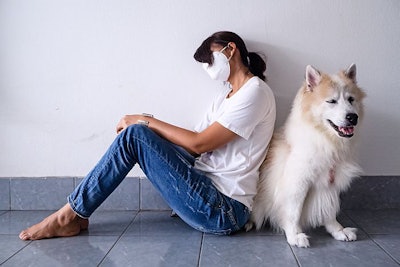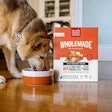
The ongoing pandemic may have altered the reasons new dog owners took on the responsibility of caring for an animal in 2020. Veterinary medicine researchers warned in Vet Record that first-time puppy owners' pandemic-influenced decisions may have negative consequences. These pandemic pets may be more likely to end up as pound puppies or with health and care problems.
Pet food companies have an opportunity to help these new owners of new dogs. As the dynamic of the pandemic changes, dog food companies may build consumer trust and loyalty by expanding efforts to reach new pet owners.
Survey on pet ownership motivations during pandemic
Scientists at the Royal Veterinary College in the United Kingdom conducted a survey of more than 6,500 adults in the UK who purchased a puppy (less than 16 weeks old) from March to December 2020. The researchers compared new dog owner motivations and behaviors around their decision to get a dog with other owners who acquired a dog between March and December 2019. Participant responses suggest that two out of every five puppy purchases were influenced by the pandemic; in fact one tenth of new puppy owners had not even contemplated pet ownership before the pandemic.
Along with not considering pet ownership, pandemic dog buyers were also less likely to have prepared for their purchase by talking to a veterinary professional, instead getting information from friends and family. During the pandemic in 2020, demand altered the pet market, reducing owner preparation and diligence as people scrambled to buy what puppies they could without investigating the source or even seeing the young dog. Instead, 28.3% of pandemic puppy buyers relied on videos to make their decision about purchasing a dog, up from 6.6% before the pandemic. One quarter of puppies were purchased without seeing the mother.
As these dogs grow up, genetic problems may manifest themselves, noted study leader Dr. Rowena Packer during Webinar Vet's Virtual Congress 2021. Similarly, as pandemic restrictions end, the needs of a growing dog may prove hard to meet as owners leave their Zoom nooks and return to offices and cubicles.
Dog food brand opportunities to help
The pet food industry can’t change why people bought puppies, but brands can provide reasons to keep them. Dog food brands, especially puppy formulations, may find this an ideal time to reach out to new pet owners. Considering these new pet owners tended to get information from their social networks, social media campaigns may be particularly effective at encouraging dog owners to learn their dogs' needs. Tips on dealing with separation anxiety, for example, may become relevant. Pet owners also need to be made aware of the signs of genetic problems as they appear in maturing dogs. While brand loyalty may be ebbing under e-commerce, pet owners may be remember the brand that helped them keep their pandemic pal.















